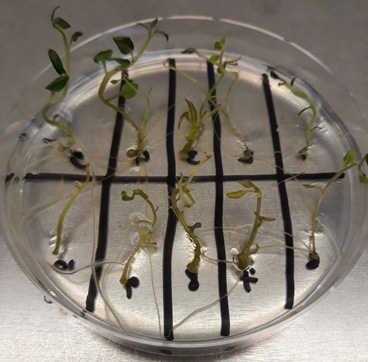
Potato is an important crop worldwide and understanding gene function is vital for breeding, disease control, understanding genes and more. Genome-editing such as CRISPR-Cas9 engineering for targeted genome modifications has been proven an efficient method. The CRISPR-Cas9 gene editing method allows precise targeting and modification of genes to improve traits of agronomic interests, by cutting the genome at a desired location and allowing an existing gene to be removed or added.

The James Hutton Institute gene editing team is working to provide high-throughput methods from Agrobacterium mediated transformation and/or PEG DNA delivery transfection into protoplasts . Using CRISPR-Cas9 technology, edited potato plants using Solanum tuberosum 'Desiree' have been successfully edited, regenerated and analysed.


